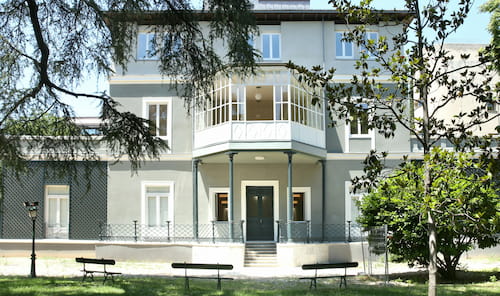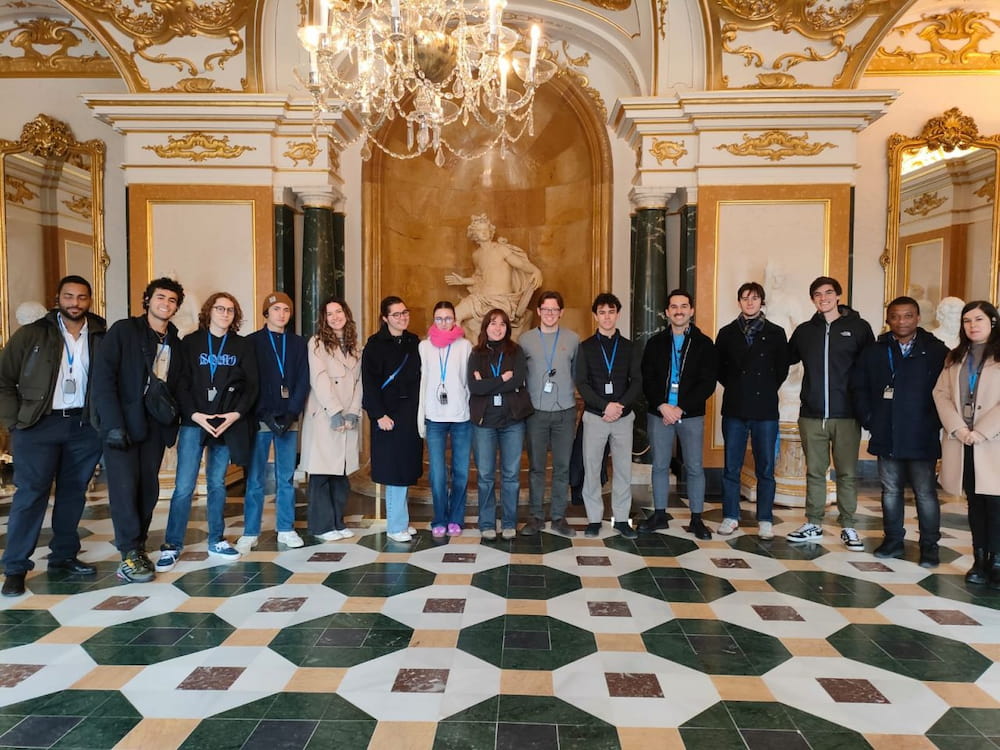Some kinds of intelligence live quietly in the background. They don’t announce themselves with perfect scores or showy credentials. They appear in how someone adapts to a new city, or listens without interrupting.
In knowing that the same gesture can mean three different things in three different places—and in asking why that matters.
This is cultural intelligence.
It’s the capacity to interpret, respond to and collaborate across cultural frameworks. Often abbreviated as CQ, cultural intelligence is a vital skill for navigating the complexity of today’s world. But it’s not something you acquire from reading a textbook. You learn it by moving through unfamiliar environments, by wrestling with ambiguity, by getting things wrong and trying again. In other words, you learn it the way IE University’s Bachelor in Philosophy, Politics, Law & Economics students did: by putting culture in context.
What is cultural intelligence?
Cultural intelligence is the ability to function effectively across cultural environments. That might sound corporate, but in practice, it’s intensely human. It’s what helps a policymaker adjust their message for a different audience. What allows a lawyer to interpret a case through local precedent. What makes a student pause before assuming their way is the only way.
For our students, CQ isn’t just helpful—it’s fundamental. These are disciplines that cross borders by design. So it makes sense that learning them should happen not just in classrooms, but in palaces, courts and city streets.
That’s exactly what our students did.
Thinking across perspectives: The exhibition

Their first step was intellectual. The Ortega-Marañón Foundation hosted an exhibition inspired by the ideas of José Ortega y Gasset and Gregorio Marañón—two thinkers who believed deeply in complexity, perspective and humanism.
But this wasn’t theory for theory’s sake. The exhibition challenged students to confront the forms of intelligence shaping our time: artificial, emotional, social, cultural. It asked how fear distorts our judgment. Whether we’re living through decline or progress. And it raised a particularly charged question for this generation: can AI replace human creativity?
Tomás Lemus, one of the students, didn’t think so. “Regardless of how advanced AI becomes,” he said, “this exhibition has taught me that creativity and will are uniquely human traits.” His response wasn’t rehearsed. It was lived—influenced by what he’d seen, read and questioned. This kind of reflection is cultural intelligence: thinking critically while holding space for uncertainty.
Learning through legacy: La Granja de San Ildefonso
The next lesson took place at La Granja, a royal palace with baroque elegance and political baggage.
On paper, the visit was about architecture and economics. But in practice, it became a study in cultural inheritance. Who gets to decide what’s preserved? How do aesthetics reflect ideology? What does power look like when it’s been frozen in gold and glass?

Here, students exercised CQ by reading the palace not just as a historic site, but as a symbol—an artifact shaped by politics, sustained by law and reinterpreted through time. They connected art to authority, beauty to bureaucracy.
In other words, they practiced reading meaning in context.
Navigating systems: Hong Kong
From past to present, the trip continued in Hong Kong. This was cultural intelligence in real time.
At the University of Hong Kong, the Department of Justice, and the Legislative Council Complex, students engaged with legal scholars and policymakers. They encountered a legal system influenced by both British common law and Chinese sovereignty. Nothing was simple. Every answer came with a footnote.
Here, CQ meant knowing when to speak and when to absorb. It meant seeing how political ideals collide with cultural realities. Outside the official buildings, students explored museums, neighborhoods, temples and alleyways. They tasted, observed, adapted.



These weren’t just experiences—they were exercises in decoding unfamiliar systems. And each moment added to a growing fluency in ambiguity, context and change.
Where education learns to listen
The Bachelor in Philosophy, Politics, Law & Economics isn’t interested in neat answers. It’s designed for students who are more curious than certain. Who can hold multiple truths at once. Who know that justice, economics, politics and philosophy all look different depending on where you’re standing.
That’s what makes cultural intelligence central to the program—not an add-on, but a core competency.
Students don’t just study the world. They step inside it, ask hard questions and notice what others miss. And they leave with something deeper than information: the ability to understand people, ideas and institutions across lines that divide most of us.
Curious about a degree that takes you further than a classroom? Explore the Bachelor in Philosophy, Politics, Law & Economics at IE University.